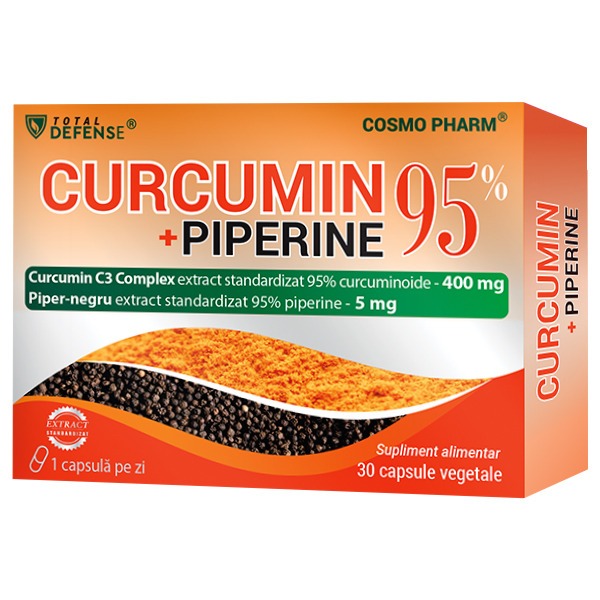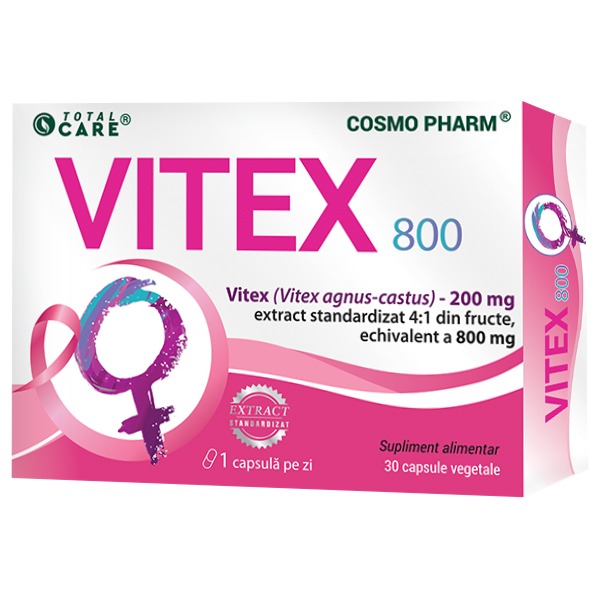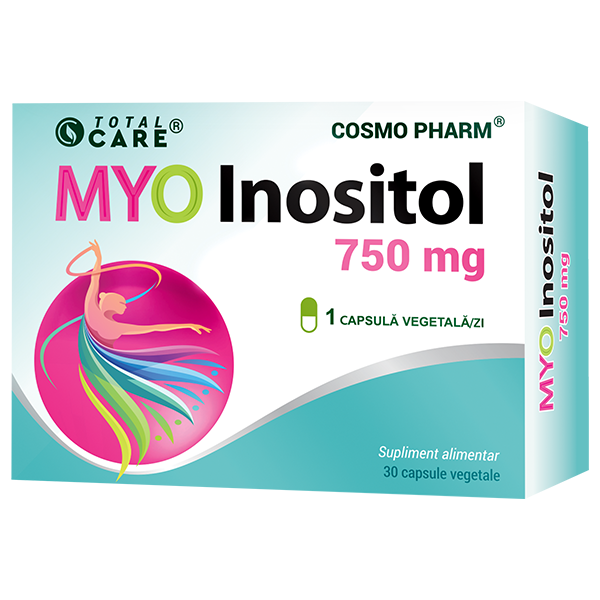Premenstrual syndrome (PMS) is a common yet often underestimated condition that affects a significant number of women worldwide. It is important to understand and discuss premenstrual syndrome, as it can have a significant impact on a woman’s quality of life and relationships.
Every woman has her own journey through the world of PMS, with different symptoms and varying severity. However, one thing is certain: premenstrual syndrome is not just fatigue or a bad day. It is a real condition with distinct causes and symptoms that can deeply affect a woman’s well-being.
In this article, we will explore premenstrual syndrome in depth, from its causes to its various symptoms, and the treatment options available. We will discuss how PMS can influence a woman’s life and offer practical advice for managing this syndrome effectively. It is time to remove the stigma and begin an open and informed discussion about premenstrual syndrome.
What is Premenstrual Syndrome?
Premenstrual syndrome (PMS) is a common condition that affects many women during their reproductive years. It is a collection of physical and emotional symptoms that regularly occur before the onset of menstruation and subside or disappear once menstruation begins. PMS can vary in intensity from one woman to another, with some experiencing mild symptoms, while others face severe symptoms that significantly impact their daily life.
Causes of Premenstrual Syndrome
The exact causes of premenstrual syndrome (PMS) are not fully understood, but several theories and factors contribute to the development of this syndrome. One significant factor is hormonal changes. Fluctuations in hormone levels, particularly estrogen and progesterone, are considered a primary trigger for PMS symptoms. These hormones naturally fluctuate during the menstrual cycle and can affect the central nervous system and other systems in the body.
Another factor is hormonal sensitivity. Some women are more sensitive to these hormonal changes than others, which may cause them to experience PMS symptoms more intensely. In addition, changes in hormone levels can affect serotonin, a neurotransmitter in the brain associated with mood regulation and emotional well-being. Imbalances in serotonin levels can contribute to emotional symptoms of PMS, such as anxiety and irritability.
Genetic factors may also play a role in the development of PMS. Evidence suggests that if a mother or sister experienced PMS, a woman may be more likely to develop this condition herself. Stress and lifestyle choices can also influence the severity of PMS symptoms. Chronic stress, along with an unhealthy lifestyle—such as excessive alcohol consumption or an unbalanced diet—can worsen the symptoms of PMS.
Finally, certain pre-existing health conditions, such as polycystic ovary syndrome (PCOS) or endometriosis, may exacerbate PMS symptoms or contribute to their development.
It is important to note that premenstrual syndrome is an individual condition, and the causes can vary from one woman to another. Proper diagnosis and management of PMS involves a careful evaluation of symptoms and discussions with a healthcare professional to determine the most suitable treatment and management options.
The symptoms of PMS can range from abdominal pain and breast tenderness to mood changes, anxiety, irritability, bloating, and fatigue. It is important to mention that not all women experience the same symptoms or with the same intensity.
Next, we will explore in more detail the specific symptoms of PMS and the available treatment options to help women cope better with this condition.
Symptoms of Premenstrual Syndrome

Mood Changes: One of the defining characteristics of PMS is mood swings. Women may experience irritability, restlessness, anxiety, sadness, anger, or emotional instability during the premenstrual period.
Bloating: Water retention in the body can lead to abdominal bloating and weight gain before menstruation.
Breast Tenderness: Many women experience breast sensitivity or pain before menstruation.
Abdominal Pain and Cramps: Abdominal pain and cramps may occur during PMS and can persist once menstruation begins.
Fatigue and Excessive Sleepiness: Women with PMS may have lower energy levels and feel more fatigued or excessively sleepy.
Appetite Changes and Food Cravings: Some women may experience changes in appetite, including an increased desire for carbohydrates and sweets.
Increased Blood Pressure: PMS can affect blood pressure and may cause temporary high blood pressure.
Difficulty Concentrating and Memory Problems: Some women may feel like they have trouble concentrating or remembering things during PMS.
Acne: The appearance of acne or other skin issues may be associated with PMS.
Headaches or Migraines: Headaches can be more frequent or intense during the premenstrual period.
Sexual Desire Changes: PMS can affect libido and lead to decreased interest in sexual activity.
Digestive Symptoms: Some women may experience digestive disturbances, such as constipation or diarrhea, before menstruation.
It is important to note that not all women experience the same symptoms or with the same severity. Accurate diagnosis of PMS involves identifying each woman’s specific symptoms, and treatment and management may vary based on individual needs. If you experience severe or disabling symptoms, it is recommended to consult a healthcare provider for evaluation and appropriate treatment. Read more about: magnesium bisglycinate.
Diagnosing Premenstrual Syndrome
Diagnosing premenstrual syndrome (PMS) involves evaluating symptoms and ruling out other conditions with similar symptoms. It is important to consult a doctor to obtain an accurate diagnosis and exclude other health issues. Here are the usual steps for diagnosing PMS:
Hormonal Changes:
Hormonal changes, especially fluctuations in estrogen and progesterone levels, are considered a key factor in triggering PMS symptoms. These hormones naturally vary during the menstrual cycle and can influence the central nervous system and other systems in the body.
Hormonal Sensitivity:
Some women are more sensitive to hormonal changes than others. This sensitivity can lead to the onset of PMS symptoms.
Brain Chemical Imbalances:
Hormonal changes can affect serotonin levels in the brain, a neurotransmitter associated with well-being and emotion regulation. Imbalances in serotonin levels can contribute to emotional PMS symptoms, such as anxiety and irritability.
Genetic Factors:
There is evidence that genetic predisposition can play a role in the development of PMS. If a mother or sister has experienced PMS, a woman may be more likely to develop the condition.
Stress and Lifestyle:
Chronic stress and an unhealthy lifestyle, such as excessive alcohol consumption or an imbalanced diet, can exacerbate PMS symptoms.
Pre-existing Health Conditions:
Certain health conditions, such as polycystic ovary syndrome (PCOS) or endometriosis, can worsen PMS symptoms or contribute to their development.
It is important to note that premenstrual syndrome is an individual condition, and its causes may vary from one woman to another. Proper diagnosis and management of PMS involve careful evaluation of symptoms and discussions with a healthcare professional to determine the most appropriate treatment and management options.
PMS symptoms can range from abdominal pain and breast tenderness to mood swings, anxiety, irritability, bloating, and fatigue. It is important to mention that not all women experience the same symptoms or the same intensity of symptoms.
Next, we will explore in more detail the specific symptoms of PMS and the available treatment options to help women cope better with this condition.
Symptoms of Premenstrual Syndrome
Premenstrual syndrome (PMS) can present a wide range of symptoms, and the severity and type of symptoms can vary from one woman to another. PMS symptoms can affect both the physical and emotional aspects of a woman’s life. Here is a list of common PMS symptoms:
Mood Changes: One of the defining characteristics of PMS is mood changes. Women may experience irritability, restlessness, anxiety, sadness, anger, or emotional instability during the premenstrual period.
Bloating: Water retention in the body can cause abdominal bloating and weight gain before menstruation.
Breast Sensitivity: Many women experience sensitivity or pain in the breasts before menstruation.
Abdominal Pain and Cramps: Abdominal pain and cramps may occur during PMS and can persist with the onset of menstruation.
Fatigue and Excessive Sleepiness: Women with PMS may experience lower energy levels and may feel more fatigued or excessively sleepy.
Appetite Changes and Food Cravings: Some women may experience changes in appetite, including an increased desire for carbohydrates and sweets.
Increased Blood Pressure: PMS can affect blood pressure and may cause temporary hypertension.
Difficulty Concentrating and Memory Issues: Some women may feel they have trouble concentrating or remembering things during PMS.
Acne: The appearance of acne or other skin issues may be associated with PMS.
Headaches or Migraines: Headaches may be more frequent or intense during the premenstrual period.
Changes in Sexual Desire: PMS can affect libido and may lead to decreased interest in sexual activity.
Digestive Symptoms: Some women may experience digestive issues, such as constipation or diarrhea, before menstruation.
It is important to note that not all women experience the same symptoms or the same severity. Proper diagnosis of PMS involves identifying each woman’s specific symptoms, and treatment and management may vary based on individual needs. If you experience severe or debilitating symptoms, it is recommended to consult a healthcare provider for evaluation and appropriate treatment. Read more about: magnesium bisglycinate.
Diagnostic of Premenstrual Syndrome (PMS)
The diagnosis of premenstrual syndrome (PMS) involves evaluating symptoms and ruling out other conditions with similar symptoms. It is important to consult a doctor to obtain a correct diagnosis and rule out other health issues. Here are the usual steps for diagnosing PMS:
- Symptom Evaluation: The first step in diagnosing PMS is a detailed discussion with the doctor about the symptoms experienced during the premenstrual period. The doctor will want to know the type, severity, and impact of these symptoms on daily life.
- Personal and Family Medical History: The doctor will take into account the personal and family medical history to see if there are factors that might influence the onset of PMS symptoms.
- Symptom Journal: The doctor may suggest keeping a symptom journal to track the nature and severity of the symptoms over an extended period. This journal can help establish a more accurate diagnosis.
- Excluding Other Conditions: To diagnose PMS, the doctor must rule out other conditions with similar symptoms, such as anxiety disorders, depression, polycystic ovary syndrome (PCOS), endometriosis, or other medical conditions that can cause similar symptoms.
- Menstrual Cycle Evaluation: The doctor may ask about the regularity of the menstrual cycle and other characteristics, such as the duration and intensity of menstrual flow.
- Blood Tests: In some cases, the doctor may perform blood tests to evaluate hormone levels and rule out other conditions.
- Medical Imaging: Medical imaging, such as ultrasound, may be conducted to assess the structure of pelvic organs in cases where other gynecological conditions are suspected.
- Multidisciplinary Collaboration: In more complex cases or when other conditions are suspected, the doctor may collaborate with other specialists, such as psychiatrists or endocrinologists, to get a comprehensive picture of the health condition.
It is important to emphasize that diagnosing PMS can sometimes be difficult because symptoms can vary and have multiple causes. Consulting a specialist is essential to ensure an accurate diagnosis and to establish an appropriate treatment plan, which may include lifestyle changes, hormonal therapy, or other personalized interventions.
How to Cope with Premenstrual Syndrome (PMS)

- Healthy Eating: Adopt a balanced diet rich in fruits, vegetables, lean proteins, and complex carbohydrates. Reducing the consumption of processed foods, sugar, and caffeine can help reduce PMS symptoms, especially bloating and mood swings.
- Regular Physical Exercise: Try to maintain a regular moderate exercise routine. Physical activity releases endorphins, which can help improve mood and reduce menstrual pain.
- Stress Management: Practice relaxation techniques such as meditation, yoga, or deep breathing to help manage stress. Stress can exacerbate PMS symptoms, so it is important to focus on managing it.
- Adequate Rest: Ensure that you get enough sleep and maintain a regular sleep schedule. Proper rest can help reduce fatigue and irritability associated with PMS.
- Dietary Supplements: Consult a doctor before taking dietary supplements such as Vitex, MYO-Inositol, Sage, or Curcumin, which can help manage PMS symptoms.
- Activity Planning: Try to plan lighter activities and allocate time for relaxation during the premenstrual period. Avoid overburdening yourself with stressful tasks whenever possible.
- Social Support: Talk about PMS symptoms with friends or family so they can offer support and understanding. Social support can have a positive impact on well-being.
- Consulting a Doctor: If PMS symptoms are severe and significantly affect your quality of life, consult a doctor for evaluation and appropriate treatment. The doctor can recommend personalized treatment options.
It is important to be patient with yourself during the process of managing PMS, as symptoms can vary in intensity and affect different aspects of your life. With careful attention and proper support, you can cope better with this period and maintain your health and well-being.
Vitex and PMS Symptom Relief
Vitex (Vitex agnus-castus), also known as Chaste Tree or Monk’s Pepper, is a supplement that has been used for centuries in traditional medicine to support the health of the female reproductive system and improve hormonal balance.
Benefits of Vitex 800 from COSMO PHARM®:
- Hormonal Balance and Fertility: Vitex may help reduce premenstrual symptoms (hot flashes, irritability, breast tenderness, mood swings, menstrual pain, etc.), regulate the menstrual cycle, and increase progesterone levels. These effects can contribute to improving female fertility.
- Reduced PMS Symptoms: In a study, nearly 93% of women who took Vitex reported a reduction in premenstrual symptoms, including menstrual pain, depression, anxiety, and food cravings.
- Lower Prolactin Levels: Vitex may help lower prolactin levels, which can influence other hormones, including estrogen and progesterone, thus contributing to the reduction of PMS symptoms.
- Antibacterial and Antifungal Effects: Vitex may have beneficial effects on immune system health and help combat bacterial and fungal infections.
- Improved Mood and Reduced Anxiety: Some women have experienced improved mood and reduced anxiety under Vitex administration.
How MYO Inositol Alleviates PMS Symptoms
MYO Inositol from COSMO PHARM® is a supplement that contains myo-inositol, one of the most bioavailable forms of inositol. This supplement is associated with a range of benefits for female health, including alleviating PMS symptoms and other hormonal disorders. Here’s how MYO Inositol can help alleviate PMS symptoms:
Premenstrual Syndrome (PMS): MYO Inositol may help reduce PMS symptoms, including menstrual pain, bloating, irritability, and mood swings. It works by stabilizing hormonal levels and blood sugar, which can be influenced by hormonal changes during the premenstrual period.
Cyclic Disorders: MYO Inositol contributes to regulating the menstrual cycle and improving menstrual regularity. This can be beneficial for women with irregular cycles or ovulation disorders.
Polycystic Ovary Syndrome (PCOS): This supplement is particularly effective in supporting the health of women with PCOS, a common endocrine disorder that can cause severe PMS symptoms. MYO Inositol may help create a healthy intraovarian environment, regulate the menstrual cycle, and improve ovulation and fertility.
Emotional and Behavioral States: MYO Inositol can help balance anxiety, depression, and other emotional and behavioral disorders associated with PMS. It can stimulate the production of “happiness hormones” such as serotonin, thus contributing to improved mood.
Metabolic Disorders: MYO Inositol may help correct metabolic disorders that can contribute to high blood pressure, diabetes, and metabolic syndrome. It can also regulate glucose absorption, which can be beneficial for women with blood sugar-related issues.
How Curcumin Piperine 95 from COSMO PHARM® Alleviates PMS Symptoms:
Curcumin, especially when administered with piperine (a compound extracted from black pepper), can have significant benefits in alleviating premenstrual syndrome (PMS) symptoms. Here’s how it works and how it helps:
Antioxidant and Anti-inflammatory Properties: Curcumin has powerful antioxidant properties, helping neutralize free radicals and reduce inflammation in the body. PMS symptoms can be exacerbated by inflammation, and curcumin can help reduce these negative effects.
Reducing Joint and Muscle Discomfort: Some women experience joint and muscle pain during PMS. Curcumin can help alleviate these symptoms due to its anti-inflammatory and analgesic properties.
Mood Effects: Mood changes, such as irritability and sudden mood swings, are common during PMS. Curcumin can help balance neurotransmitters responsible for mood and may have antidepressant and anxiolytic effects.
Support for the Digestive System: Some women may experience digestive issues during PMS. Curcumin, especially when combined with piperine, can improve digestion and help with weight management.
Anti-aging Benefits: Curcumin has remarkable antioxidant properties that can contribute to the protection of skin health and appearance and delay the aging process.
Premenstrual syndrome (PMS) is a common condition experienced by many women, but it is often underestimated or overlooked. It is important to understand that PMS is a real condition with distinct causes and varying symptoms that can significantly affect the quality of life and relationships of women. To cope with PMS, it is crucial to have an open and informed discussion about this issue and seek effective solutions.
The exact causes of PMS are not fully understood, but hormonal fluctuations, hormonal sensitivity, and other factors may play a role in the development of this syndrome. Diagnosing PMS involves evaluating symptoms, excluding other conditions, and working with medical professionals to establish an appropriate treatment plan.
PMS symptoms can range from mood swings and bloating to menstrual pain and fatigue. Not all women experience the same symptoms or severity, which makes personalized treatment important.
There are several strategies for managing PMS, including adopting a healthy lifestyle, regular physical activity, stress management, adequate rest, and social support. Dietary supplements like Vitex, MYO Inositol, and Curcumin Piperine95 from COSMO PHARM® can offer significant benefits in alleviating PMS symptoms, but it is important to consult with a doctor before starting any additional treatment.
Ultimately, each woman has her own journey through the world of PMS, and with proper support and personalized approaches, she can better cope with this condition and maintain her health and well-being.



